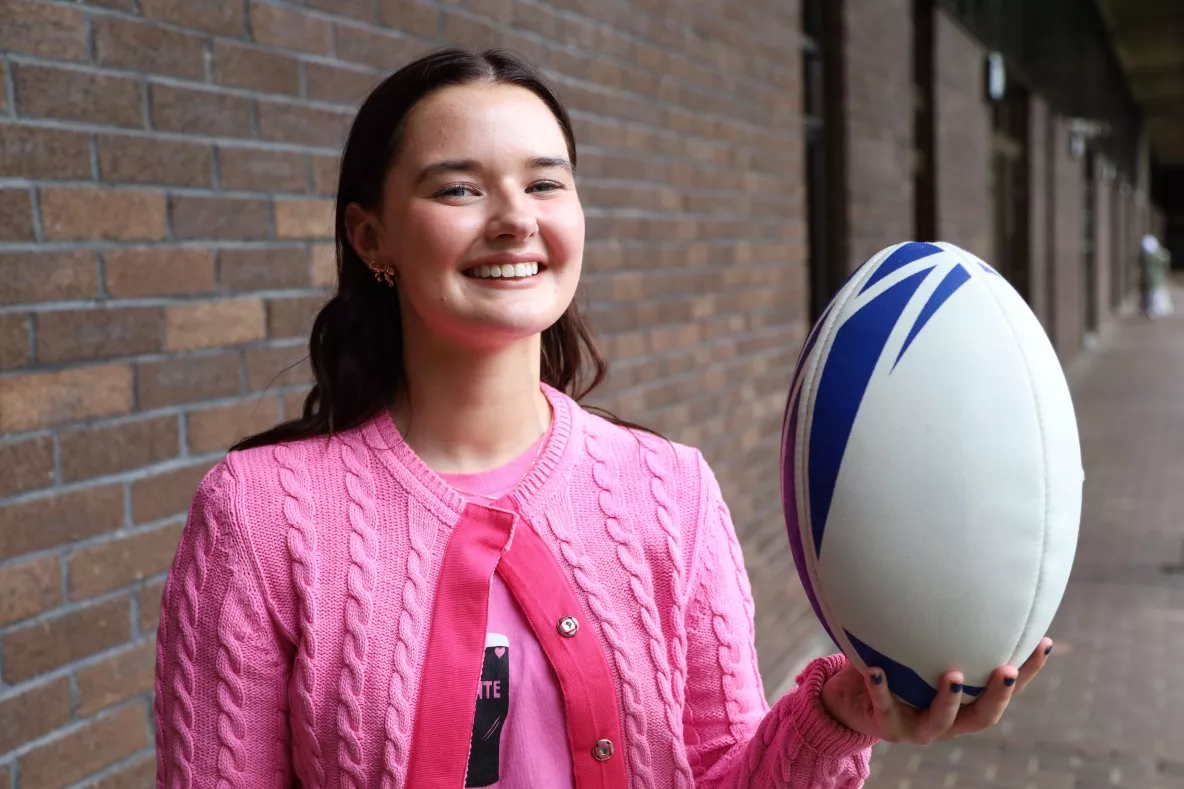

Mathematical Sciences student Anna Flannery is participating in the summer research programme at the Faculty of Science and Engineering. We recently met with Anna to ask about the programme and what she was investigating.
Course: BSc in Mathematical Sciences
Supervisor: Associate Professor Helen Purtill
Name of Research Project/Activity: Statistical Modelling of Injury Rates in Rugby: Towards Injury Prevention Strategies
Why did you decide to study Mathematical Sciences at UL?
In secondary school, I always gravitated towards Maths. I had a genuine love for the subject. For both Junior Cert and Leaving Cert my study breaks consisted of a cup of tea and a Maths exam paper. When it came to deciding what course to study, I was met with nothing but encouragement and enthusiasm by my teachers. As a girl in a typically male dominated stream, it was intimidating yet exciting to take on the challenge.
What motivated you to apply for the Summer Bursary Programme?
I am a naturally eager person and I love to take on a challenge. I have found that throughout the college semesters we would touch on many new interesting topics but I personally never had the time to get a deeper knowledge about them. I knew that having the opportunity to research for the summer would be a great chance to develop and learn new skills. Also, I wanted to gain hands-on experience with R before facing into co-op in January.
What are you doing as part of your research here at UL?
As part of my research this summer in UL, I am working in collaboration the Irish Rugby Injury Surveillance (IRIS) project team. IRIS is a world leader in the surveillance of injury rates in rugby. Currently, I have been analysing injury reports over the span of 8 years. I have been using the statistical programming language R to create a variety of visualisations and analyses of the injury trends experienced by male and female amateur rugby players.
What skills have you developed over the summer?
I have developed a variety of valuable skills over the summer. By using Excel, I had the opportunity to develop data cleaning and organisation skills. In R, I enhanced my data manipulation skills using dplyr, I created effective graphs and plots with ggplot2, and conducted statistical analyses to examine the relationships between predictive factors and injury. I also gained practical knowledge on writing efficient R scripts, data wrangling, exploratory analysis and statistical modelling. Without a doubt, all these skills have strengthened my capability to handle, analyse and present data effectively.
What has this experience taught you and what would you recommend it to others?
The Summer Bursary Programme has taught me how to apply the theory I’ve learned in my modules to practical research. It has enhanced my problem-solving and critical thinking skills. I have also learned how to work independently. I can say wholeheartedly, I now understand the importance of data preparation prior to performing analysis and creating plots. Additionally, I have gained a deeper understanding of how the research process works and also how to effectively present findings. I would highly recommend this programme to anyone who has an interest in getting an insight into the world of research. It offered me invaluable hands-on experience and the chance to work closely with experienced researchers. This opportunity will no doubt stand to me for the rest of my degree and also when I start co-op in January.
What are your future career plans, would you consider a career in research?
At the moment, I plan on continuing my studies in Mathematical Sciences and hopefully pursue a post-graduate degree. I intend on leveraging the skills and knowledge I have gained from this experience regardless if I end up in academia, industry or a research role. However, this programme has definitely sparked a strong interest in research and I am excited at even the idea of working in a field that drives innovation and discovery.
Postal Address: Science & Engineering Faculty Office, Lonsdale Building, 1st Floor, University of Limerick, Limerick, Ireland
Email: scieng@ul.ie
Phone: +353 (0)61 202109 or +353 (0)61 202642